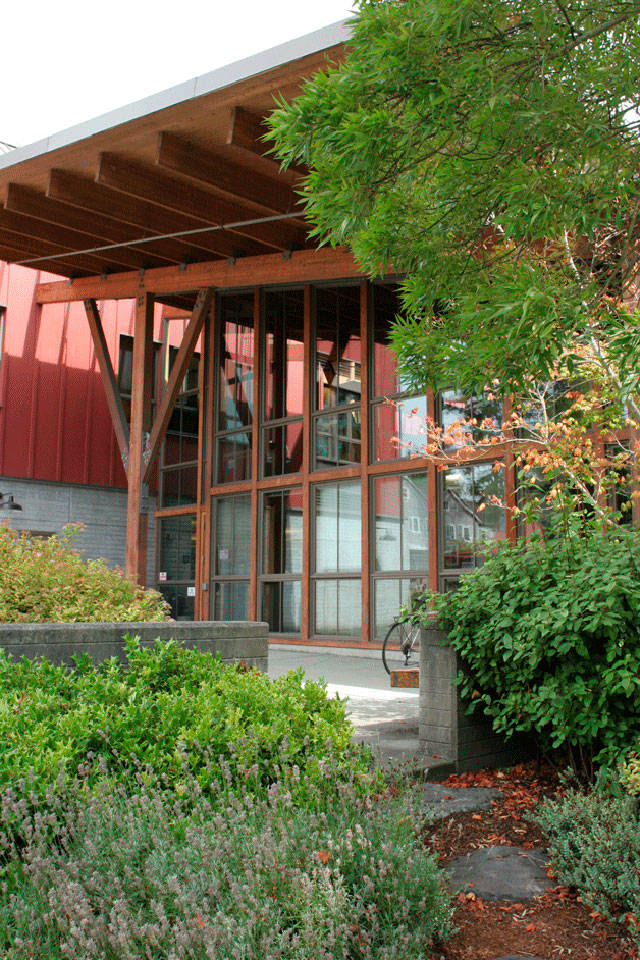The city of Bainbridge Island has cleared a legal hurdle with its controversial update to new city regulations that dictate how lands with environmentally sensitive features can be developed.
The city council adopted a new critical areas ordinance in February, and the new rules went into effect April 23.
Some of the new regulations included greater restrictions on land that’s considered “critical aquifer recharge areas.” All of Bainbridge Island — except for shoreline areas and the island’s designated places for more dense development (downtown/Winslow Center, business/industrial areas, Rolling Bay Center, Island Center and Lynnwood Center) — falls within the critical aquifer recharge area.
Those rules included the designation, and protection, of native vegetation as part of development or redevelopment.
But earlier this year, the new rules were appealed by the Kitsap County Association of Realtors. The association filed a petition against the new set of regulations with the Central Puget Sound Growth Management Hearings Board, and also filed a lawsuit in Kitsap County Superior Court.
The association claimed the regulations conflicted with the Growth Management Act, a sweeping state law that restricts land use in Washington, and also said that nearly every potential development, use or activity on Bainbridge would need to obtain a critical area permit because the entire island had been designated a “critical area” with the adoption of “Aquifer Recharge Protection Areas.”
In its recent decision, however, the Central Puget Sound Growth Management Hearings Board unanimously upheld the city’s update to its critical areas ordinance, and said the city acted lawfully in passing the new regulations.
City officials noted that the hearings board said Bainbridge met the requirements under the Growth Management Act on public notice and participation, protection of private property rights, and use of best available science in developing the regulations to protect critical areas and aquifer recharge zones.
In upholding the city’s approach to protecting the island’s critical areas and its aquifer system through “Aquifer Recharge Protection Areas,” the board noted that Bainbridge’s entire aquifer system was designated a “sole source aquifer” because it supplies at least 50 percent of the city’s drinking water.
“Bainbridge Island is unique in its dependence on aquifers for our water,” said Mayor Kol Medina.
“To make sure we protect our drinking water for generations to come, the council felt that we needed a correspondingly unique approach in our critical areas ordinance,” Medina said. “I’m so pleased that the board upheld our approach and our community’s right to do everything we can to protect our environmental resources.”
The hearings board also rejected the association’s claim that the city’s new rules lacked a scientific basis, and said the group had not presented evidence that could “refute the city’s process, data or conclusions.”
“I’m glad that a decision was made by the board, so that we can now move forward and continue to focus on making this ordinance work for everyone,” said Deputy Mayor Joe Deets.
The Kitsap County Association of Realtors was represented by land use attorney David Weibel of Templeton, Horton, and Weibel, and other Bainbridge plaintiffs were represented by attorney Dennis Reynolds of the Dennis Reynolds Law Office.
In a statement to the Review following the decision, the Realtors’ association said Bainbridge’s new rules are “believed to be the most restrictive ordinance of its kind in the state of Washington.”
“In part, this ordinance designated the entirely of Bainbridge Island as critical aquifer recharge area, and requires property owners to preserve 65 percent of their property in its native vegetative state as an Aquifer Recharge Protection Area,” the association said, and added that it challenged the ordinance for being “overly broad” and not being supported by applicable scientific research.
The association said the new regulations will significantly limit a property owner’s right to use and enjoy their property.
“Kitsap County Association of Realtors is reviewing this decision and considering its options in moving forward,” association officials said in their statement.



